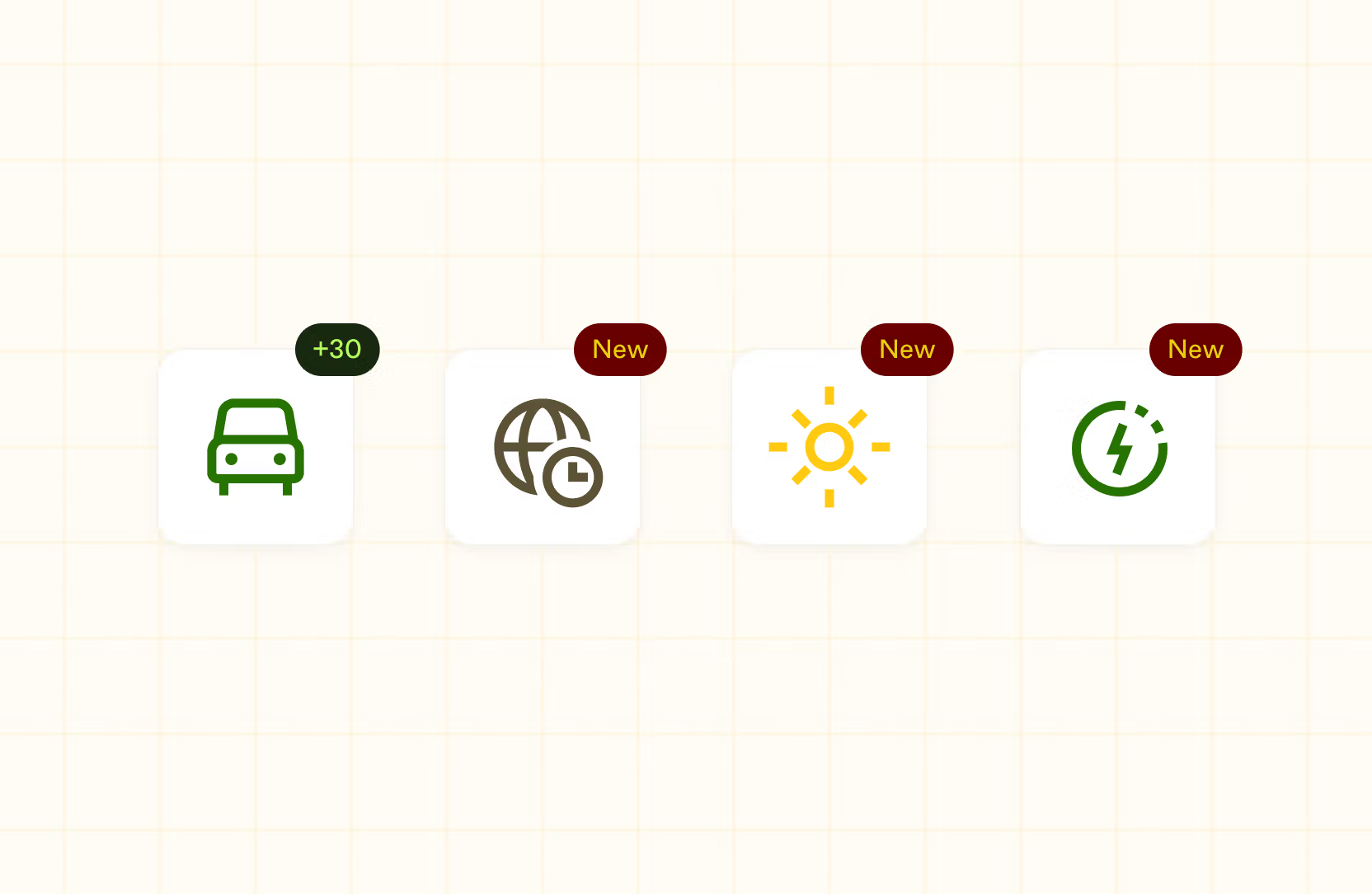Support for new electric vehicles, solar inverters and more

At its core, Enode is a platform that enables developers to connect to their customers' energy devices, and build products and services on top of them. Today we’re releasing support for even more electric vehicle brands and models, solar inverters, and additional command functionality. I’ll also share a quick preview of what’s coming next!
Additional support for new vehicles
We’ve added support for two new vehicle brands, including Fiat in the EU, and Ford in both the EU and USA. We’ve also added support for 30 new models for a number of vehicle brands, including Citroen, Cupra, DS, Kia, Mercedes and Renault. Check out the complete list of vehicles supported and their capabilities here. As we grow our presence in the US, we’re focused on supporting more makes and models. If you’d like to have your say, you can submit a request here.
Timezone support
You asked, we delivered! You can now associate a charging location with a specific timezone. Any hour minute values in the API are interpreted in the location's timezone. This includes smart charging deadlines, schedules, and tariffs. Existing locations are defaulted to the UTC timezone. We’ve updated the documentation to reflect this functionality here.
Support for solar inverters
The future of energy rests on integrating with every energy device in the customer’s home. We’ve launched support for three new solar inverter brands, bringing the total number of brands to seven. The new brands are Fronius, Goodwe and Growatt, and when combined with the other four brands, represent roughly 80% of the solar inverter market globally. Check out the complete list of solar inverters supported and their capabilities here.
Minimum threshold for smart charging
It’s now possible to configure the minimum charge threshold when smart charging is activated. Previously, Enode would automatically charge the battery to 20% before stopping the charge and moving to a smart charging plan. You can now configure this threshold with the minimumChargeLimit setting which is exposed as part of smartChargingPolicy. The default value is set to 0%, and users can set their preference for the minimum level. Some users may prefer a low (or no) threshold to avoid charging when electricity is expensive, while other users may want to set a higher threshold. If you don't want to expose this functionality to your users, you can set the threshold for all users at a default level of your choice. Read the docs here.
Coming soon
Looking forward, I’m particularly excited about the launch of self service. We believe that innovation will happen by allowing developers access to our platform so they can sign-up and build for themselves. We're working to launch self-serve so you can take Enode for a test-drive in our sandbox. Keep an eye out…
